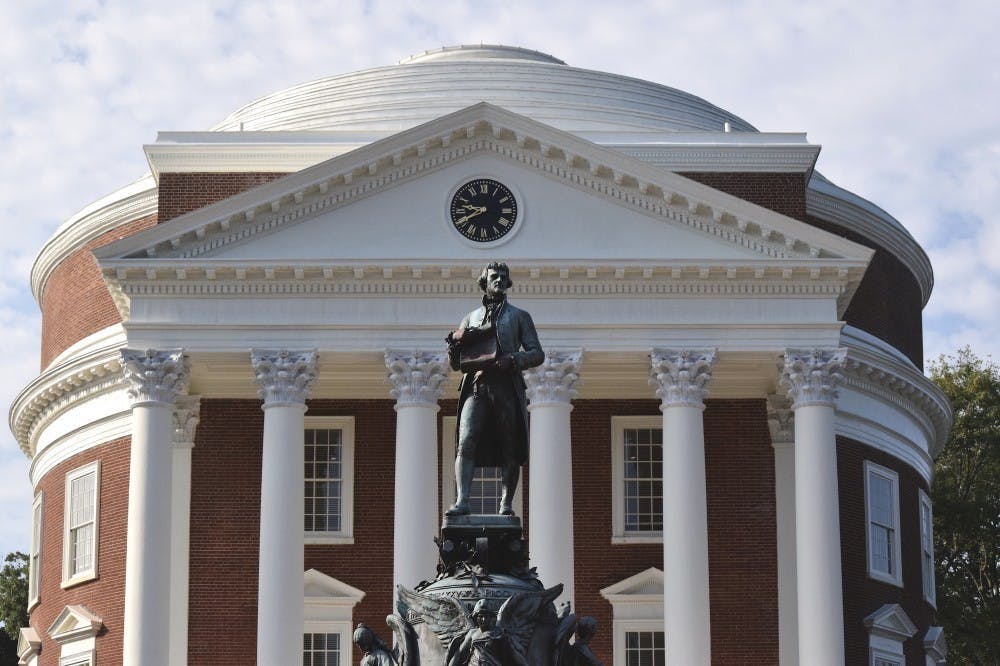On July 1, the Charlottesville City Council voted to establish a new City holiday, Liberation and Freedom Day, set for March 3, to commemorate the arrival of the Union Army in Charlottesville and emancipation of black slaves in 1865. This would be fortuitous news, save for the fact that the Council has also seen fit to cease celebration of Thomas Jefferson’s birthday, April 13, known to the University community as Founder’s Day.
Eliminating Jefferson’s birthday as a holiday now is nothing more than a half-baked attempt at virtue signaling. If the City was serious about laundering its past, it should also change its name, a reference to the tyrant King George III’s Queen-Consort, Charlotte of Mecklenburg-Strelitz, as memorializing a monarch is particularly contrary to the values of democracy and the American republic. It might also consider removing the statue of Lewis, Clark and Sacagawea, a clear symbol of American westward exploration and expansionism that claimed the lives and land of so many Native Americans. Evidently, there is a great deal of work to be done to sanitize the city and though the Council has been dominated by leftists for over a decade it has not yet followed through on that goal. Since the Council has not generally made cleaning up Charlottesville’s history its goal, the decision now to change the observed holidays must be called into question.
A further example of this is the fact that George Washington Day remains a holiday in Charlottesville, set on the third Monday in February in the very ordinance that was amended to remove Jefferson’s holiday. In light of this blatant disparity, it seems clear to me that Jefferson’s birthday was removed not truly for our second governor and third president’s legacy as a slaveholder, but rather to establish the particular contempt the City has for him. There seems to be little meaning in passing judgement on Jefferson for holding slaves if the City ignores the very same offense committed by Washington. There simply have to be better ways to address Jefferson’s flaws.
The City should indeed take measures to educate its citizens on Jefferson’s participation in the institution of slavery, but it must also remember his contributions to the City, Commonwealth and country. The Council could have instead changed the name of the holiday to something along the lines of “Thomas Jefferson Legacy Day.” Instituting City programming that respects what he did for the country while still educating members of the community of his slaveholding practices was another available option. There was no particularly good reason to remove the holiday, and in doing so tacitly condemn one of the most important Virginians in history.
Despite Charlottesville’s troubled and ugly past, erasing celebrations of Jefferson is not, as City Manager Tarron Richardson puts it, “confronting the legacy of white supremacy.” This legacy is most visible in the statues of Confederate generals dotting the cityscape and across the South. However, Jefferson’s birthday does not commemorate traitors to the union, but rather one of its architects. Officially made a city holiday in 1945, this celebration rightfully lionizes one of the great minds of the early United States, whose civic legacies such as the Virginia Declaration of Religious Freedom, the Declaration of Independence, and our very own University. Conflating Jefferson with rebels who sought to tear apart this country is a disservice to right minded Americans and the very foundation of democracy in the Western Hemisphere.
I fear that in the understandable rush to remove many symbols of hate, the City has overreached and also eliminated this more innocuous celebration. Dismissing the holiday — and by association our national respect for Jefferson — as a token of white supremacy would be foolish. It seems clear that we ought to remember the importance of Jefferson’s work to Charlottesville, Virginia, and the United States as a whole while also recognizing his shortcomings.
I can think of no holidays better for these United States than those celebrating the acts of the Founding Fathers and other prominent Americans. While religious holidays can be somewhat exclusive, civic holidays include everyone who identifies as an American, in the quintessential Jeffersonian style. This holiday ought to be retained and modified if necessary, but not removed. It is for this reason that I commend the City’s dedication of Liberation and Freedom Day and mourn their poor judgement in casting aside Jefferson’s birthday. The onus is on the University and the student body to remember that we attend Mr. Jefferson’s University and benefit from his work for America and the University every day. For the sake of future generations and classes that might increasingly see Jefferson in terms of black and white, good and evil, I hope we remember to learn from his virtues and vices and remember him as one deeply imperfect architect of our ever more perfect Union.
Bilge Batsukh is an Opinion Columnist for The Cavalier Daily. He can be reached at opinion@cavalierdaily.com.







